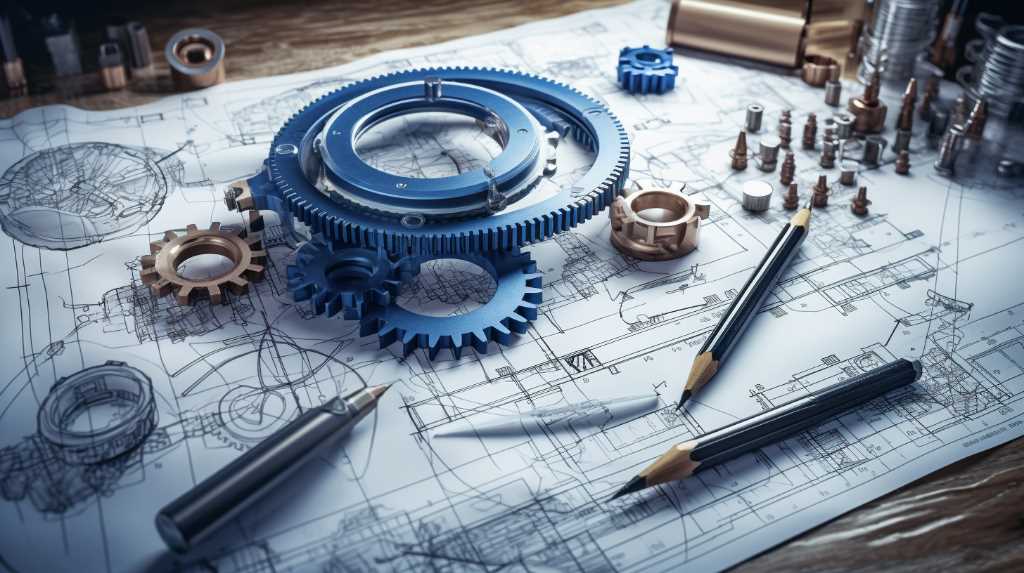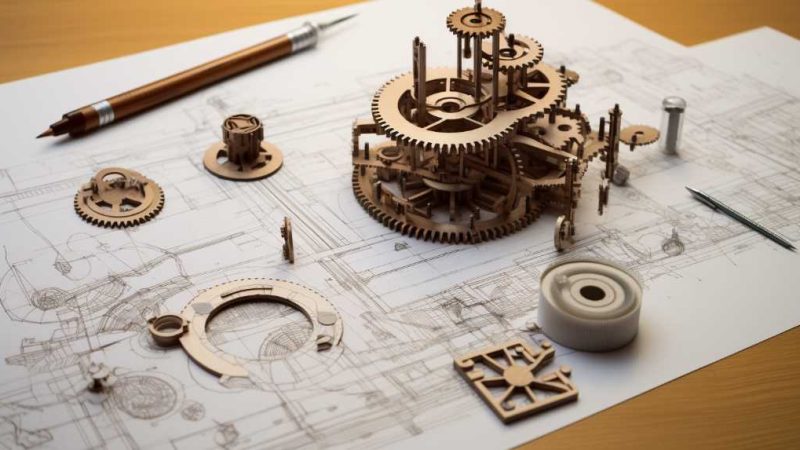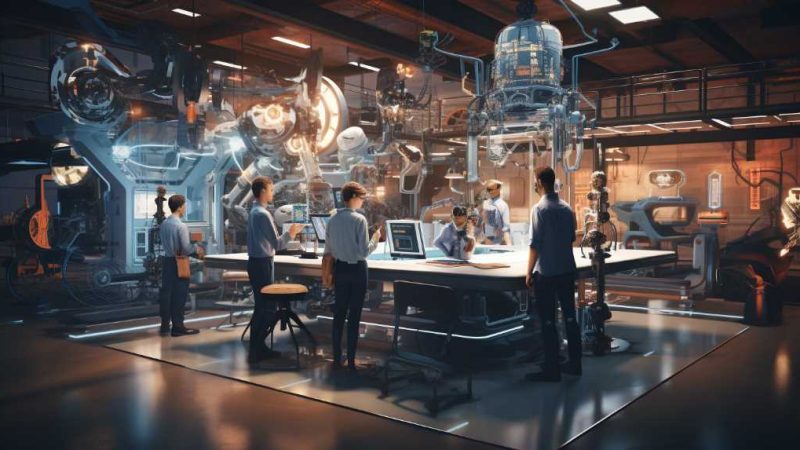Mechanical Engineering Program Essentials

Mechanical Engineering is a field that cleverly combines cutting-edge innovation with practical applications. It uses concepts from physics and material science to create, assess, manufacture, and look after various mechanical systems. A top-notch Mechanical Engineering program builds on a foundational set of courses that provide crucial knowledge in areas such as heat and energy (thermodynamics), the behavior of fluids (fluid mechanics), the properties of materials (materials science), and the forces on solid objects (solid mechanics).
It’s important for students to not only learn theory but also to sharpen their problem-solving and critical thinking skills. Hands-on lab work is key, as it helps students apply what they’ve learned in class to real situations. Knowing how to use industry-standard software is another must-have, enabling students to keep up with contemporary design and analysis techniques.
The educational journey usually wraps up with capstone projects and internships. Why are these so valuable? They give students a taste of the real world, readying them for careers and helping them to grow professionally. For example, through an internship at a leading automotive company, a student might get the chance to work on the latest electric vehicle technology, putting classroom theories into action and gaining insights from experienced engineers. This kind of experience can be a huge advantage when starting a career in Mechanical Engineering.
Core Curriculum Components
In a mechanical engineering course, you’ll start with essential subjects like physics, materials science, and thermodynamics. These areas are really important because they are the foundation for everything else in the field.
Physics teaches you about the basic forces, how things move, and energy. This is key for designing and figuring out how machines work. For example, when you learn about the principles of energy conservation in physics, you can apply this to create more efficient engines.
Materials science is about understanding what stuff is made of and how it behaves. This comes in handy when you need to choose the right material for building something. Imagine you’re designing a car engine – you’ll need materials that can handle high temperatures and stress, and that’s where your materials science knowledge is crucial.
Thermodynamics is all about energy and how heat moves around. It’s super useful when you’re working on things like power plants or cooling systems. If you’re designing an air conditioner, for instance, you need to understand how to transfer heat from inside a room to outside to make the room cooler.
Essential Technical Skills
Mechanical engineers aiming for success need to be good at certain technical skills. Learning computer-aided design (CAD) is key because it helps them make and change detailed designs for parts, which is a big part of creating new products and checking how they will work. Knowing how to program, especially in languages like Python or MATLAB, is also important. This knowledge lets engineers set up systems to do tasks automatically, make sense of data, and test how different systems will work, which can lead to new ideas and better ways of doing things. It’s also crucial to know how to solve problems using structured methods like Six Sigma or the 8D approach. These methods provide a clear set of steps to figure out what’s wrong and how to fix it.
When mechanical engineers learn these skills, they can work better and more precisely in the complex world of design and making things.
For example, if an engineer is working on a new bike design, using CAD software like AutoCAD or SolidWorks can help them create a detailed 3D model of the bike. They can then change this model easily to improve the design. If they know programming, they can write a script in Python to calculate the best dimensions for each part of the bike based on different rider heights. And if a problem comes up, like the bike frame being too heavy, they can use the 8D problem-solving steps to find a solution, such as choosing a lighter material without sacrificing strength.
These skills make sure that mechanical engineers can handle the challenges they’ll face in their jobs effectively.
Practical Laboratory Experience
Laboratory work is vital for a mechanical engineer’s learning and job skills. It’s where students apply what they’ve learned in books to real situations. In the lab, they get to handle materials, see how their designs perform, and use the latest tech. This helps them really grasp how mechanical parts and systems work.
It’s also key for picking up important abilities like solving problems, analyzing data, and explaining technical stuff clearly. Plus, it gets them ready for the twist and turns they’ll face in their careers by teaching them to think on their feet and come up with new ideas.
Industry Software Proficiency
Several software tools are fundamental to the modern mechanical engineer’s education, enabling the simulation, design, and analysis of complex systems. Mastery of these programs is not just recommended; it is essential for navigating the multidisciplinary and computational nature of today’s engineering challenges.
Programs such as SolidWorks and Autodesk Inventor empower engineers with robust computer-aided design (CAD) capabilities. For simulation, ANSYS and COMSOL Multiphysics offer powerful finite element analysis (FEA) to predict real-world behaviors of materials under various conditions. MATLAB and LabVIEW are indispensable for data analysis and system design, facilitating algorithm development and hardware interfacing, respectively.
The pedagogical approach to these tools must be rigorous—incorporating practical exercises and project-based learning—to ensure graduates are not only proficient but also agile in adapting to new and evolving industry-standard software.
Capstone Projects and Internships
Mechanical engineering programs are making sure students are ready for work by including capstone projects and internships in their courses. Capstone projects help students put what they’ve learned into action, encouraging them to come up with new ideas and solve tough engineering issues. They have to work with classmates from different engineering areas, which is great for learning to work as a team.
Internships are super valuable because they let students use what they’ve been taught in real jobs. This helps them learn more, meet people in the industry, and might even lead to a job later on. Schools need to work closely with companies to make sure these chances are available, so their graduates know their stuff and can adapt to new tech changes.
For example, a student might work on a capstone project that involves creating a new type of energy-efficient engine, which requires them to apply physics and materials science. They might collaborate with electrical engineers to integrate a control system for the engine.
During an internship, that same student could help a company test automotive parts, which would give them a chance to see how the theories they learned about in class work in practice. Plus, if they do a great job, the company might offer them a job after they graduate. It’s important for students to get these experiences so they can step into their careers with confidence.
Conclusion
To wrap things up, a strong mechanical engineering program provides students with a solid education that covers all the basics. It teaches them the important technical skills they need and gives them real experience in labs.
It’s also key for students to learn how to use the software that professionals in the industry rely on. By working on big final projects and getting experience through internships, students can learn how to apply what they’ve studied in class to solve problems in the real world.
This kind of education makes sure that when students graduate, they’re ready to handle the new technologies and challenges they’ll face in their careers as mechanical engineers.






